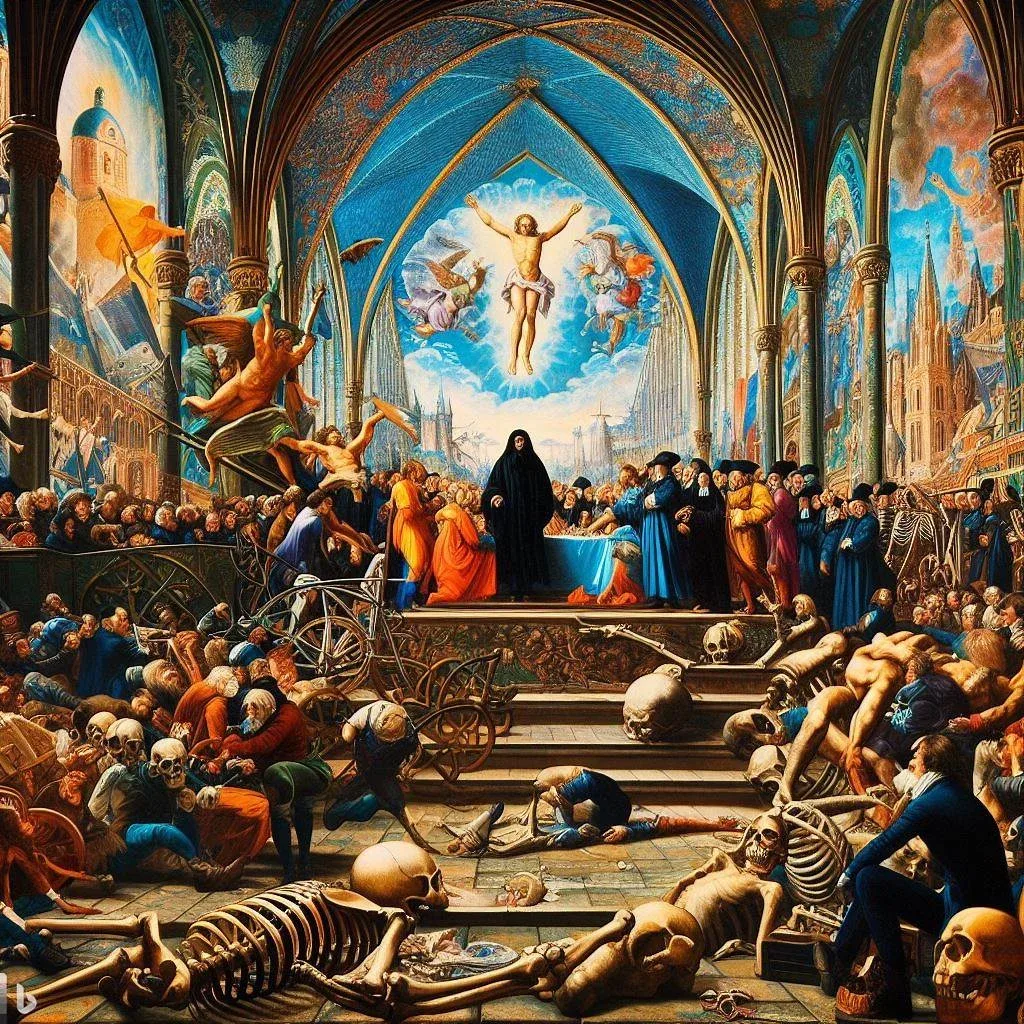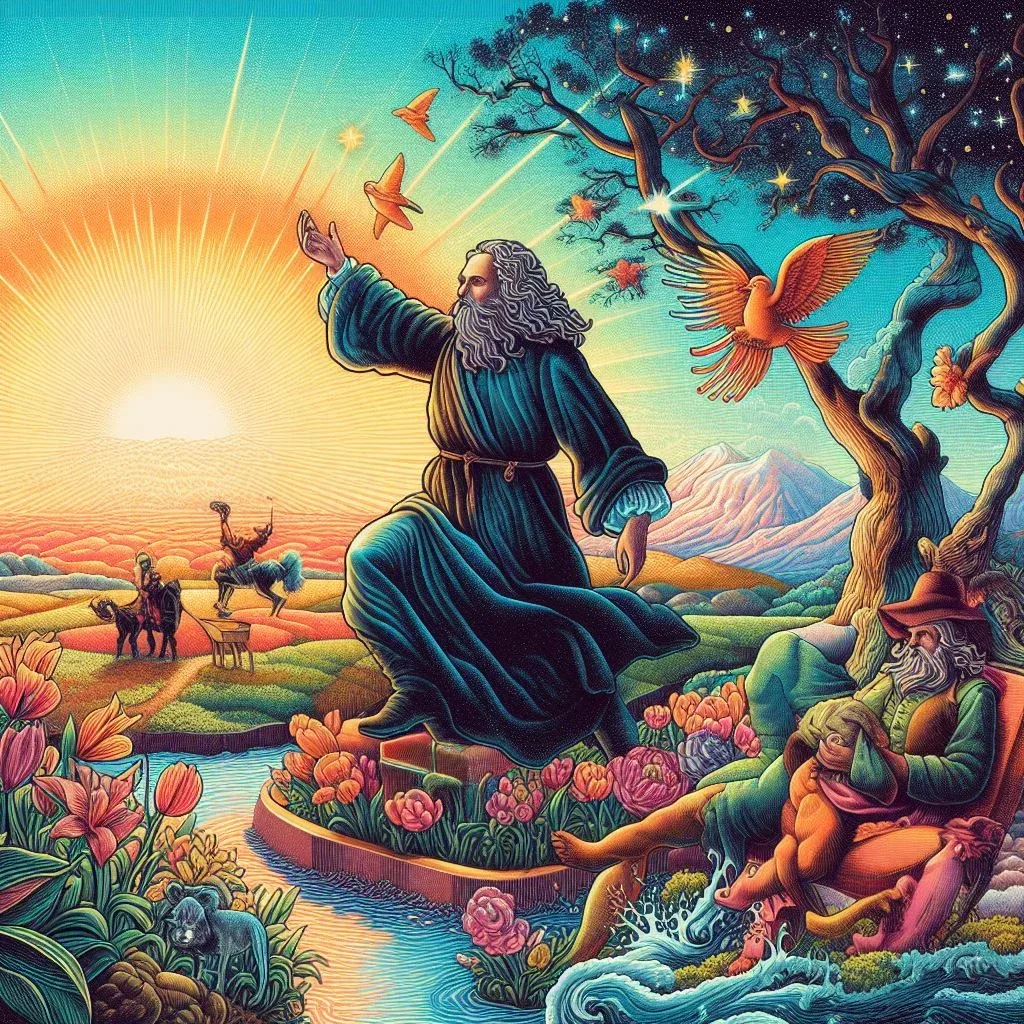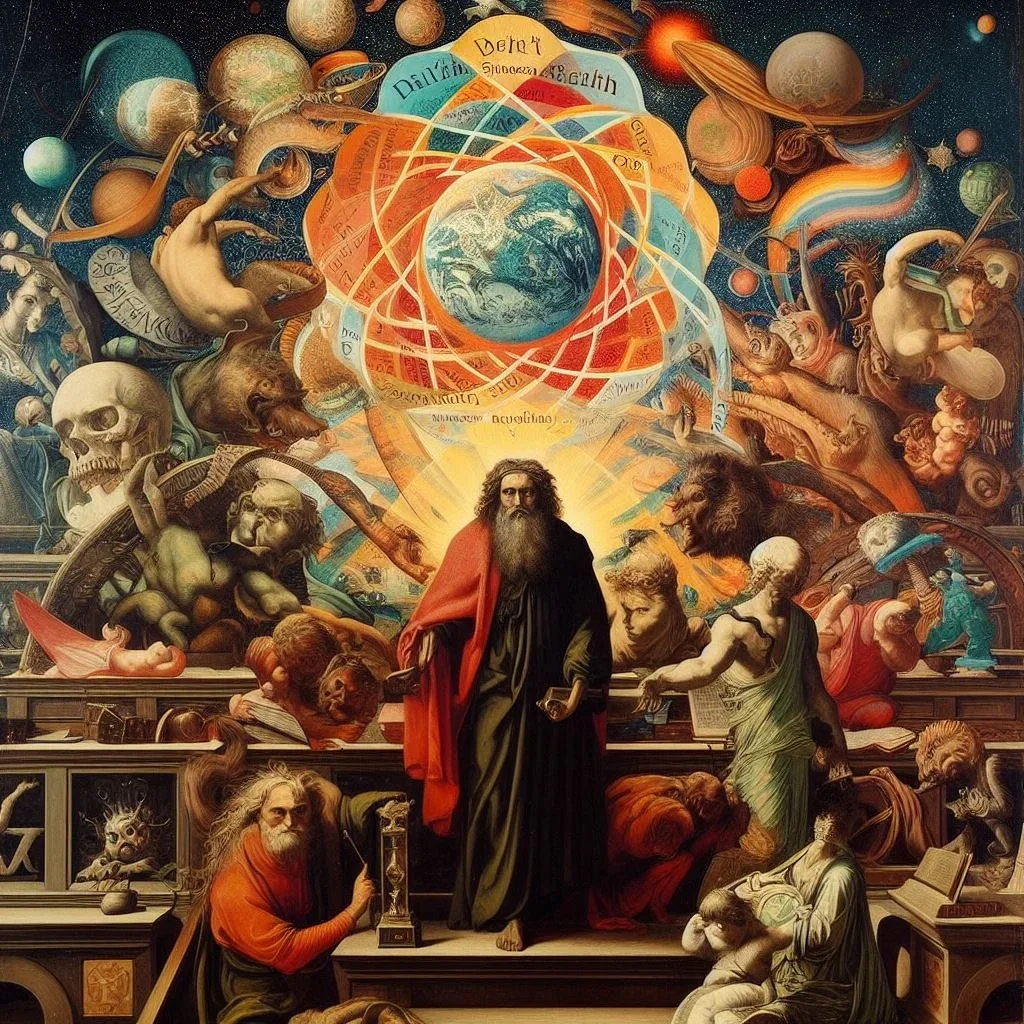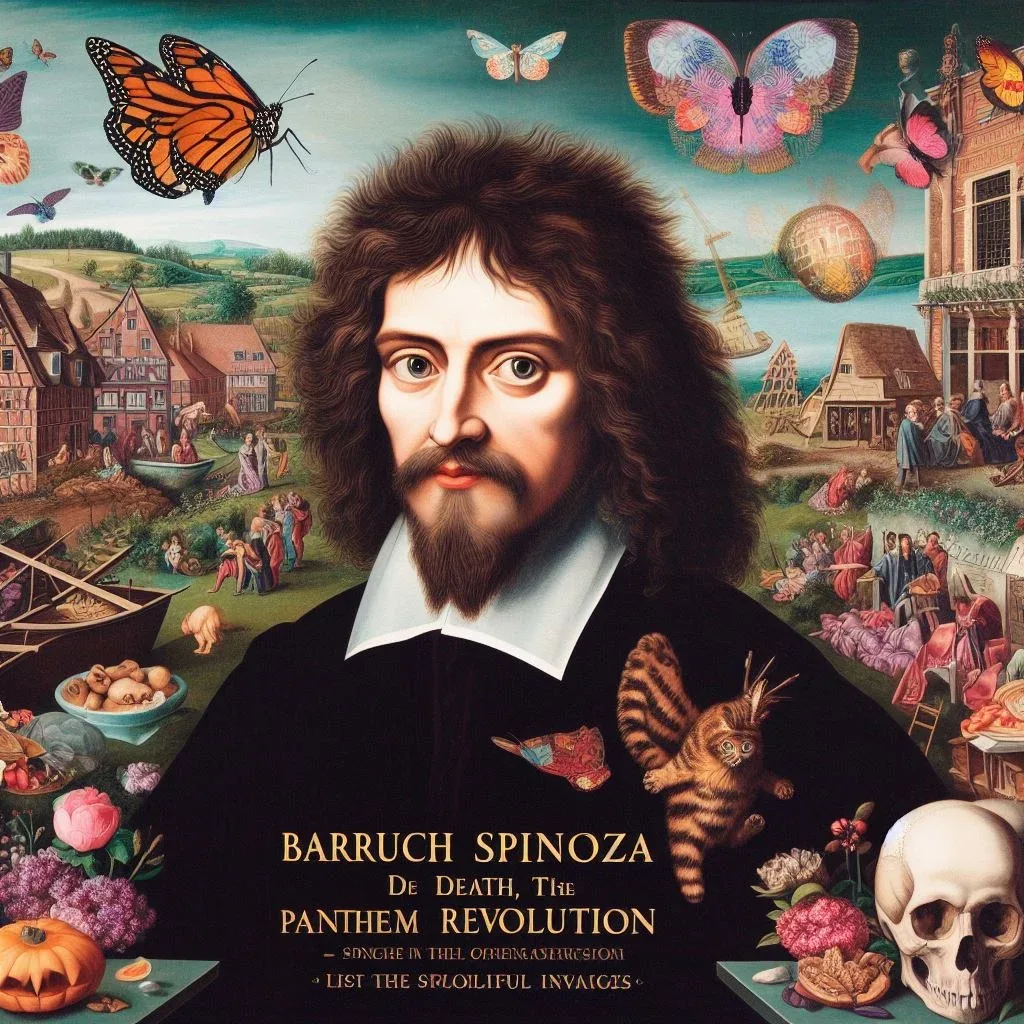Baruch Spinoza, also known as Benedict Spinoza, was a XNUMXth-century Dutch philosopher whose life and work left an indelible mark on the history of philosophy and theology. His life journey, his revolutionary ideas, and his unique approach to divinity through pantheism make him a fascinating and influential figure. In this article, we will explore in detail Spinoza's life and death, as well as his contributions to philosophy and theology, with a special focus on the concept of pantheism.

The Life of Spinoza: A Search for Truth and Freedom
Baruch Spinoza was born in 1632 in Amsterdam, in the Netherlands, into a family of Sephardic Jews who had taken refuge from the Inquisition regime in Portugal. His Jewish religious upbringing initially shaped his thinking, but he soon began to question and challenge traditional beliefs.
Spinoza was a self-taught scholar who dedicated himself to studying the philosophical and scientific works of his time. His relentless search for truth and his critical approach led him to break with the Jewish community and be excommunicated in 1656. This marked the beginning of a life of isolation and intellectual independence.
The Works of Spinoza: Pamphlets, Treatises and Ethics
Spinoza produced a number of works, including political pamphlets and philosophical treatises. However, his most significant and lasting work is “Ethics”, a monumental work in which he develops his ethical and metaphysical philosophy. In “Ethics”, Spinoza explores the nature of God, man and the universe, basing his philosophy on a pantheistic approach.
Spinoza's Pantheism: God and Nature as One Being

Pantheism is a philosophy that considers God and nature to be one and the same reality. Spinoza embraced this view, arguing that God was not a separate, transcendental being, but the single substance that constituted the totality of reality. He viewed God as the immanent cause of all things, as opposed to viewing God as a personal entity.
Spinoza's pantheism had profound implications for his ethics. He argued that by understanding the nature of God and his relationship to the universe, human beings could achieve true freedom and virtue. His philosophy defended the serene acceptance of what happens in life and the search for self-knowledge as a path to happiness.
The Death of Spinoza: An Enduring Legacy
Baruch Spinoza died in 1677, at the age of 44, due to a lung disease. Despite his early death, his ideas and works continued to influence philosophers, theologians and thinkers from different disciplines. His legacy lies in his courage to question the norms of his time, his tireless search for truth, and his revolutionary approach to divinity through pantheism.
Spinoza's Contributions to Philosophy and Theology
Spinoza's contributions to philosophy and theology are vast and profound. In addition to his revolutionary pantheism, he also influenced political thought, especially with his ideas about power and freedom. His work is a crucial reference for understanding ethics and morals.

Spinoza challenged traditional conceptions of God and nature, paving the way for discussions about the divine in more rational and immanent terms. His philosophy of freedom, although often misunderstood in his time, left a lasting mark on human thought.
Conclusion: The Revolution of Pantheism and Spinoza's Legacy
The life and death of Baruch Spinoza represent a relentless search for truth and intellectual freedom. His pantheistic philosophy challenged the religious and philosophical norms of his time and paved the way for a deeper understanding of the relationship between God, nature and man. His legacy endures, continuing to inspire those who seek truth and wisdom, as well as those who challenge conventional conceptions of divinity and reality.
Baruch Spinoza, the outcast philosopher, left behind a rich heritage of thought that invites us to contemplate the nature of God and our own existence in a deeper and more liberating way. His commitment to the pursuit of truth and freedom continues to resonate through the centuries, inspiring new generations of thinkers and questioners.
FAQ – Baruch Spinoza: Life, Death and Revolutionary Pantheism
In this FAQ, we will answer some of the most frequently asked questions about Baruch Spinoza, his life, death, and his revolutionary pantheistic philosophy.

1. Who was Baruch Spinoza?
Baruch Spinoza, also known as Benedict Spinoza, was a XNUMXth century Dutch philosopher. He is widely recognized for his contributions to philosophy, especially his revolutionary pantheism.
2. What is pantheism?
Pantheism is a philosophy that asserts that God and nature are one and the same reality. Spinoza embraced this view, arguing that God is immanent and not a separate personal entity.
3. What was Spinoza's most significant contribution to philosophy?
Spinoza's most significant contribution was his work “Ethics”, in which he developed his ethical and metaphysical philosophy, based on pantheism. He argued that understanding the nature of God was fundamental to true freedom and virtue.
4. Why was Spinoza excommunicated by the Jewish community?
Spinoza was excommunicated in 1656 due to his heretical views and criticism of traditional Jewish religion. His excommunication marked the beginning of his life of intellectual independence.
5. How was Spinoza's death?
Spinoza died in 1677, at the age of 44, due to a lung disease. His death occurred at a relatively young age, but his ideas continued to influence human thought.
6. What is Spinoza's legacy in philosophy?
Spinoza's legacy in philosophy is marked by his revolution in the concept of God, his influence on ethics, his defense of freedom of thought and his critical approach to religion. His ideas continue to inspire thinkers and questioners.
7. Did Spinoza's pantheism have an impact on areas other than philosophy?
Yes, Spinoza's pantheism had an impact on areas such as theology, ethics and political thought. His views on the nature of God influenced the understanding of divinity in more rational and immanent terms.
8. What is the fundamental message of Spinoza's philosophy?
The fundamental message of Spinoza's philosophy is the search for truth, understanding the nature of God and achieving true freedom through knowledge and virtue.
Baruch Spinoza is a notable figure in the history of philosophy, whose life, death, and pantheistic philosophy continue to inspire those who seek a deeper understanding of reality and intellectual freedom. His ideas challenged religious and philosophical conventions of his time, leaving a lasting legacy of critical thinking and questioning.




